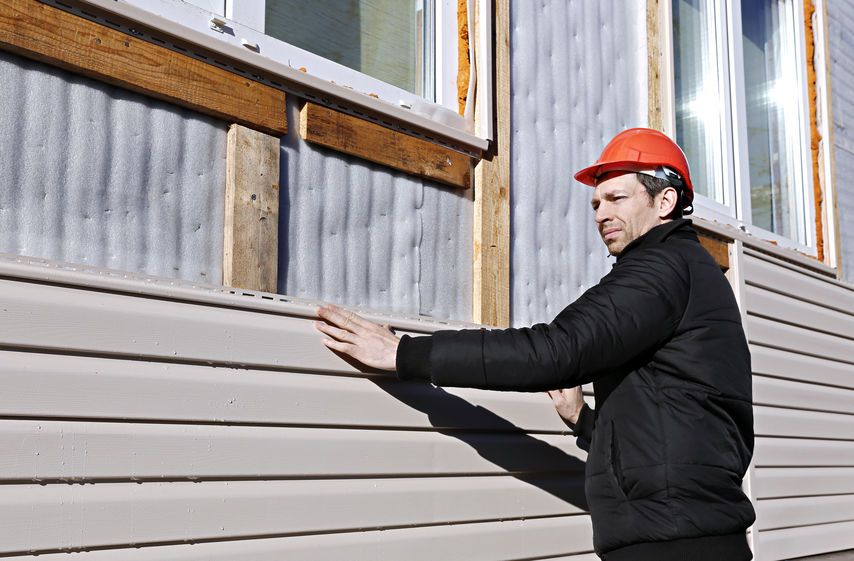Nail Requirements You Need to Know
One thing to note when installing a pine siding is that you need common nails, and not just finish nails because common ones have heads, which work great to prevent the siding from collapsing or backing off the wall due to harsh weather conditions or when it starts warping.

Recommended Nails for Pine Siding
As earlier mentioned, the best nails for pine siding should be stainless steel, hot-dip galvanized nails or high tensile strength aluminum nails. You should not go for common nails because these nails corrode easily. In addition, they may cause an unsightly look of the paint and wood. In case the wood is supposed to be left unfished to weather or finished in a natural manner with water-repellent preservatives or light-colored penetrating stains, then stainless steel or aluminum nails should be used.
Nail Sizing for Pine Siding
You should consider spacing the nails so that each one penetrates its own stud. 8d nails are preferred because they are two and a half-inch long, making them quite good for siding. However, it might not be possible to nail into studs, mostly if you are installing a pine siding. Provided the sheathing is about half an inch thick, then you can nail the siding to using 5d nails, which are one and three-quarter inches long.
Nail Shanks and Points
Since pine siding tends to expand and contract with temperature changes, you have to avoid using nails that have smooth shanks. This is because smooth shanks will loosen over time as the expansion and contraction take place. Instead of these, consider using ring or spiral nails because they help boost the holding power of the nail. Nail points are also an important factor to pay attention to. Avoid needlepoint nails because they can cause the siding to split, a situation that could be quite expensive since you will need to get new siding. To avoid such a scenario, go for diamond-point or blunt-point nails, as they help prevent wood splits.
The Type of Nails to Avoid
As you have probably noted, not all nails can be considered good when installing pine siding. Although it is still possible to install siding using other kinds of fasteners, you might want to avoid those that are not corrosion-resistant. In particular, nails made of copper might corrode after some time and cause stains on your siding. Staples and electro-plated nails may also have a similar effect.
When installing pine siding, selecting the right installation tools will help make the job easier and quite fast to do. In fact, you will most likely avoid installation mistakes, ensuring your siding lasts long. One tool you have to choose wisely is the nails. Upon selecting the right pine siding, you have to match it up with the perfect nails. This article has shown you some of the best nail sizes you should consider using for pine siding. However, if you are doing the siding installation on your own, you might want to reach out to a qualified contractor, as they already know the kind of tools to use. Therefore, when working with experts, you do not have to be stressed about the nails to use, as they can worry about that on your behalf.
